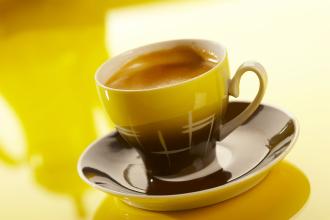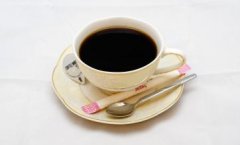A brief introduction to the origin, development, history and culture of boutique coffee beans in Silver Mountain Manor, Jamaica.

Flavor
The nose is very full-bodied, with persistent fruity flavours.
Granule
The particles are fuller.
Baking method
Moderate baking
The caffeine content of Blue Mountain Coffee is very low, which is less than half of that of other coffees, which is in line with the modern concept of health.
The same coffee tree species, whether planted in Hawaii, Kenya, Papua New Guinea or anywhere else with a similar climate, cannot produce the flavor of blue mountain coffee beans.
Pure Jamaican Blue Mountain Coffee perfectly combines the unique sour, bitter, sweet, mellow and other flavors of coffee to form a strong and attractive elegant flavor, which is unmatched by other coffee. People who love Blue Mountain Coffee say: "it combines all the advantages of good coffee & # 39; Coffee Beauty & # 39;" Jim, general manager of Pitt, which is famous for its coffee and tea business in the United States, said of Blue Mountain Coffee: "it tastes fragrant, smooth and mellow, and it makes me feel as precious as a gem. It is precisely because the taste of Blue Mountain coffee is moderate and perfect, so Blue Mountain coffee is generally drunk in the form of black coffee." Its liquid is golden in the sun and tastes smoothly. According to the coffee book, Blue Mountain is the only bitter and sour coffee in the world that people can enjoy. Just drink it.
By 1981, about 1500 hectares of land in Jamaica had been reclaimed for coffee cultivation, followed by investment in another 6000 hectares of coffee land. In fact, today's Blue Mountain area is a small area with a planting area of only 6000 hectares, and it is impossible to grow all the coffee marked "Blue Mountain" there. Another 12000 hectares of land is used to grow two other types of coffee (non-Blue Mountain Coffee): Alpine Top Coffee (High Monuntain Supreme) and Jamaican Premium Coffee (Prime Washed Jamaican).
Blue Mountain Coffee is one of the most advantageous coffee growing conditions in the world. Jamaica's weather, geological structure and topography provide a unique ideal place. The ridge that runs through Jamaica extends to the eastern part of the island, with the Blue Mountains rising to more than 2100 meters. Cool weather, foggy, frequent precipitation, use this rich soil Rain Water to reconcile. Here, a mixed planting method is used to grow coffee trees to accompany banana trees and avocado trees on terraces.
Some small estates also grow Blue Mountain Coffee, such as Wallenford Estarte, Silver Hill Eatate, and J. Martinez) Atlanta Manor (Atlantn Estate), etc. Even the largest landowners in the region are small-scale growers by international standards, many of whom are small landowners whose families have been working on the land for two centuries. The coffee industry in Jamaica faces a series of problems, such as the impact of hurricanes, increased labor costs and difficult mechanization of terraces. It is difficult to rationalize planting on many small estates and farms.
Jamaican Blue Mountain Coffee, however, Blue Mountain Coffee is a coffee that coffee retailers that value credibility need to stock up anyway. The major retailer in the UK said: no matter what the price, he will continue to sell Blue Mountain coffee all year round because he has many customers who only recognize "Blue Mountain".
As Japan has always invested in the Jamaican coffee industry, the cultivation of Blue Mountain Coffee is now mostly controlled by the Japanese, and there is no doubt that they have also won the right of priority to buy Blue Mountain Coffee. In 1992, Jamaica sold 688 tons of Blue Mountain coffee to Japan, 75 tons to the United States and 59 tons to Britain. Now, 90% of the harvested Blue Mountain coffee is bought by the Japanese. Now that the rest of the world can only get 10% of Blue Mountain, Blue Mountain coffee is always in short supply, regardless of the price. In the UK, Langford Brothers Brothers has been the only supplier for many years. Later, the Edmunds Group (Edmonds Group) also received a supply from Jamaica's Salda Food Company (Salda Foods).
The best Blue Mountain Coffee is undoubtedly one of the best. Although the price can ensure an adequate supply of Blue Mountain coffee, it does not guarantee the best flavor of the coffee. Also, this kind of coffee tastes much more expensive than it looks. If you want to taste its best flavor, you have to put more coffee beans than other coffee, otherwise the flavor will be a little different, so the flavor is that it has 10% to 15% more coffee beans than the coffee whose price is inferior to it.
The real Blue Mountain Coffee is made from the best local raw coffee beans, which is the fun of tasters. Its flavor is rich, balanced, fruity and sour, and can meet people's various needs. In addition, the high-quality fresh Blue Mountain coffee has a long-lasting flavor, as drinkers say, with a lingering aftertaste.
The best blue mountain coffee beans are NO.1 peaberry, also known as pearl beans, which are carefully selected small round beans and boutique products at an altitude of 2100 meters.
Important Notice :
前街咖啡 FrontStreet Coffee has moved to new addredd:
FrontStreet Coffee Address: 315,Donghua East Road,GuangZhou
Tel:020 38364473
- Prev

A brief introduction to the elegant flavor and flavor characteristics of fine coffee beans in Silver Mountain Manor, Jamaica.
After going through many hurdles, Blue Mountain Coffee has rich aroma, round and soft taste, as well as a little fruit flavor, and moderate roasting can highlight its distinctive flavor. It is one of the sweetest coffee in the world, and its taste is described as: it gives me the quality of a gem, and it is as precious as a gem. It's complex, but very gentle.
- Next

A brief introduction to the planting market price of boutique coffee beans in Silver Mountain Manor, Jamaica.
The same coffee tree species, whether planted in Hawaii, Kenya, Papua New Guinea or anywhere else with a similar climate, cannot produce the flavor of blue mountain coffee beans. Pure Jamaican Blue Mountain Coffee perfectly combines the unique sour, bitter, sweet, mellow and other flavors of coffee to form a strong and attractive elegant flavor, which is unmatched by other coffee. Love Blue Mountain Coffee
Related
- Does Rose Summer choose Blue, Green or Red? Detailed explanation of Rose Summer Coffee plots and Classification in Panamanian Jade Manor
- What is the difference between the origin, producing area, processing plant, cooperative and manor of coffee beans?
- How fine does the espresso powder fit? how to grind the espresso?
- Sca coffee roasting degree color card coffee roasting degree 8 roasting color values what do you mean?
- The practice of lattes: how to make lattes at home
- Introduction to Indonesian Fine Coffee beans-- Java Coffee producing area of Indonesian Arabica Coffee
- How much will the flavor of light and medium roasted rose summer be expressed? What baking level is rose summer suitable for?
- Introduction to the characteristics of washing, sun-drying or wet-planing coffee commonly used in Mantenin, Indonesia
- Price characteristics of Arabica Coffee Bean Starbucks introduction to Manning Coffee Bean Taste producing area Variety Manor
- What is the authentic Yega flavor? What are the flavor characteristics of the really excellent Yejasuffi coffee beans?

